
Prof. Sanjay Bakshi has always been allergic to MCX. When it got into serious trouble in August 2013 over the NSEL scandal and the stock price plunged, he wrote a piece called “Those Warehouse Receipts Again And What To Do About Them?” in which he attacked MCX and Financial Technologies and argued that investors should not attempt “bottom fishing” in either stock. “Capitalism works on trust, and in an exchange business like that of FT, trust in the integrity of the system attracts buyers and sellers in the first place and their increased business volume attracts more buyers and sellers and so a virtuous circle of “network effects” delivers the exchange owners with a moat. That trust now lies in tatters. So, even if FT remains solvent, its moat is now massively impaired, if not destroyed” he argued passionately.
The Prof’s advice was in sharp contrast to the action taken by other savvy investors who rushed in to take advantage of the crises in MCX and FT. Notably, Prashant Jain of HDFC Mutual Fund was among the first to buy a chunk of MCX at the throwaway price of Rs. 293.
Ankur Shah, who runs VIIR, was also loath to miss out on the opportunity. “As a contrarian, I wouldn’t want to waste a serious crisis without finding a potential investment opportunity” he said tongue in cheek.
Ankur Shah recommended a buy of MCX on the basis that it has a “competitive advantage” and did face any “financial and legal liability” over the scam. Ankur projected a “highly conservative” price target for MCX of Rs. 727.
Other super-savvy investors like Rakesh Jhunjhunwala, Radhakishan Damani, Prof. Shivanand Mankekar and Kenneth Andrade also voted with their money by buying truckloads of MCX.
As the crises got resolved and Kotak, a strong promoter, took charge of MCX, the stock price surged and several brokerages began to cautiously recommend a buy.
Prof. Sanjay Bakshi stood isolated as the only one who did not like MCX.
To clarify his stand, the Prof wrote another piece “Why I Still Don’t Like MCX” in which he candidly acknowledged that “a lot has happened to both the businesses” and “many well-known value investors have bought into one or both of their stocks”.
However, the Prof stuck to his guns on why MCX was still not a good investment opportunity.
Surprisingly, Prof. Sanjay Bakshi’s analysis was not a hard-nosed critique of MCX’s business model. Instead, he was critical of MCX being “the functional equivalent of casino where mostly gamblers gather to bet against each other”.
He also argued that MCX’s business model which is based on making money off people is not “good for civilization”. “Is more trading good for civilization?” he asked philosophically.
Well, on the day when Prof. Sanjay Bakshi first wrote the piece (2nd August 2013), MCX was quoting at Rs. 409. Today, it is at Rs. 1191, resulting in gains of nearly 200%. If you look at it from the time Prashant Jain bought the stock, the gains are nearly 300%.
Of course, Prof. Bakshi is unlikely to regret the missed opportunity because in the second piece he said that his “stomach churned” at the fact that he made money from VST, a business which is a “net negative for civilization”.
He also emphatically said that he enjoys the “peace, contentment, as well as the well-deserved, long-term profits of owning a class of businesses which are net positive for civilization because they deliver something good to their customers likes homes, and coolers, and footwear, and jeans, and holidays”.

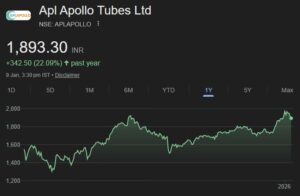
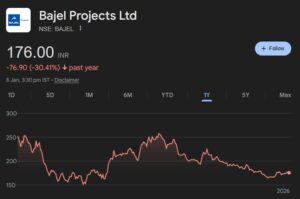
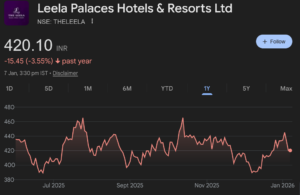
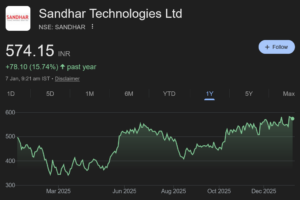
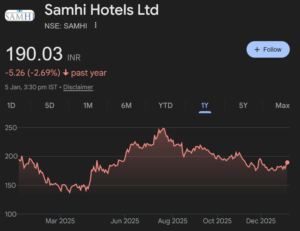
I do not agree ..MCX is a stock exchange by that logic all exchanges are bad..so all stock trading is bad..then why does Prof. Bakshi trade in stocks…there is really a thin line between investor / trader….now as far as MCX goes it has indeed run up fast …the reasons are not really fundamental…the reason why MCX returned strongly is the hope that soon it will become a full fledged exchange returning to its past glory…I think it was owned by many institutional investors who managed to pull strings and ensured “that it faced no legal or financial claim”..there is far more than what meets the eye .I commend Prof. Bakshi for his stand but it does not hold lot of legs
Prof. Sanjay Bakshi’s logic was correct .Retail traders are speculators.Most of them loose money.Most of the speculators are adrenaline junkies .MCX provide an excellent platform for them.Money can be made in many ways.Retail investors without the purpose of delivery don’t trade in commodities.If you are a farmer or merchant.For hedging it is ok.So I fully agree with Prof. Sanjay Bakshi
This topic is turning out something like
“Sex is good or bad”